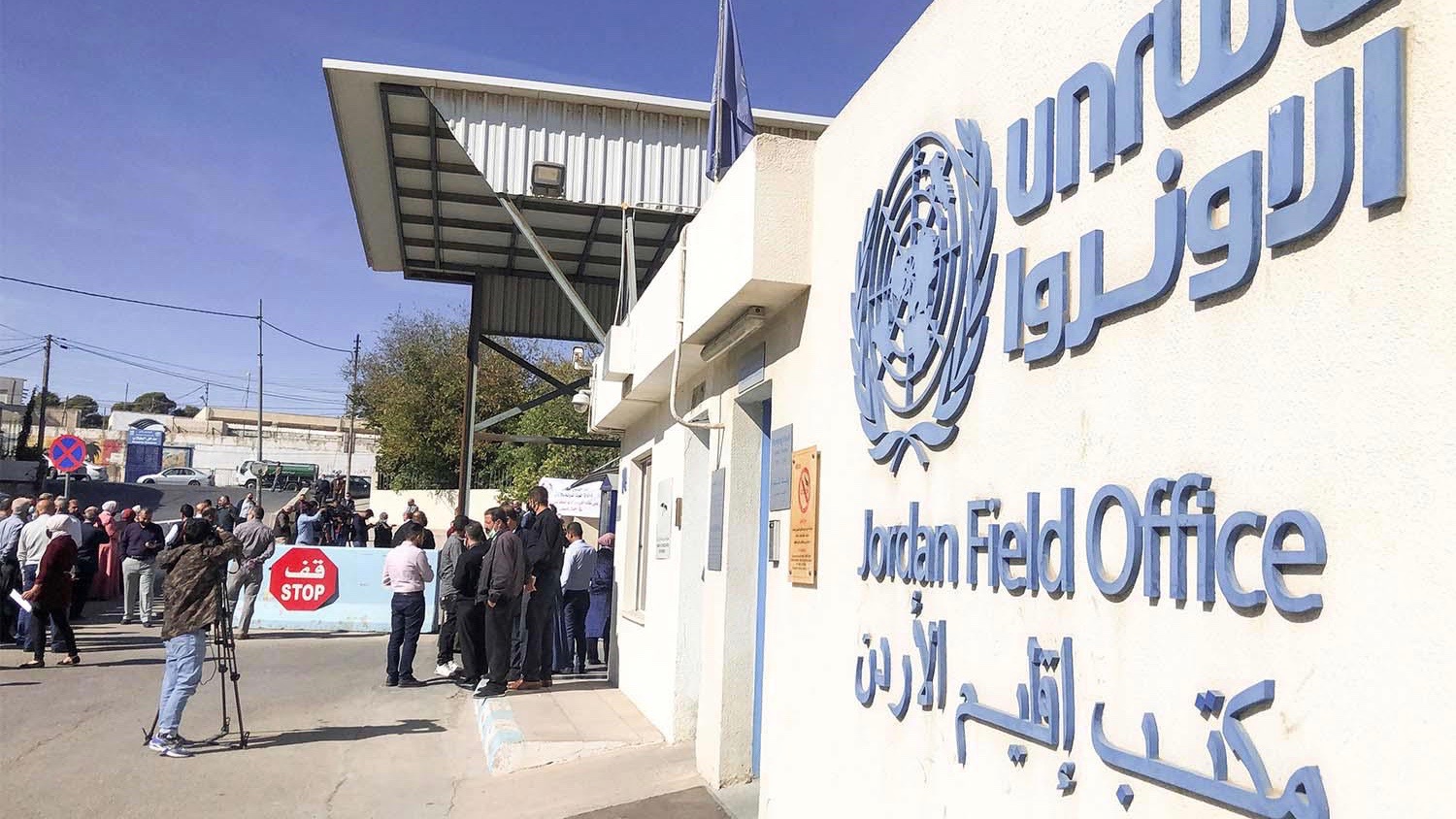Employees of the United Nations Relief and Works Agency for Palestine Refugees (UNRWA) in the occupied Palestinians territories and neighboring countries of Syria, Lebanon and Jordan are set to go on strike due to delays in payment of salaries among other issues on Thursday, December 2. The announcement of the strike came a day after employees held a “comprehensive warning strike” on Monday, said Riad Zygan, head of the UNRWA Workers Union in Jordan, in a statement to Jordan Labour Watch. Various sources close to the union have said that the strike will go ahead on Thursday if the issues raised by them are not resolved. These include the cancellation of exceptional leave without pay (by which the agency can direct employees to take mandatory unpaid leave in the event of severe funding shortages), postponement of bonuses, repeated delays in salaries, and the demand for social safety net payments to retired employees.
UNRWA is the primary UN agency looking after the basic needs of approximately 5.7 million Palestinian refugees living in camps in the occupied West Bank, Jerusalem, Gaza, Jordan, Syria and Lebanon. It runs food distribution programs, schools, healthcare clinics and hospitals, and provides essential services to Palestinians forced to live as refugees after the establishment of Israel in 1948 due to displacement and ethnic cleansing which continues till today.
UNRWA in Jordan runs 161 schools for close to 120,000 students and 25 health centers catering to more than two million Palestinian refugees in the country. Overall, the agency runs 710 schools and educational institutes across the Middle East benefiting more than half a million children. It runs 143 healthcare facilities used by 2.87 million Palestinian refugees. It also runs various other social welfare and upliftment programs, including for social safety nets and microfinance loans. In total, the UNRWA provides employment to more than 30,000 people across the region.
UNRWA has stated that it is facing an acute shortage of funds and has been unable to pay salaries to its staff for November on time. It has warned of catastrophic consequences for the refugees if its operations and services are disrupted because of the funds crunch, especially amid the ongoing pandemic. Speaking at a press conference in Jordanian capital Amman on Tuesday, UNRWA Commissioner General Philippe Lazzarini said that the agency is at a “very dangerous junction” as in the absence of any political solution to the Israeli occupation, Palestinian refugees are heavily dependent on its services to live a life of dignity. According to Lazzarini, UNRWA has only managed to secure 48% of its budget for 2022 and 2023. It generated USD 60 million at a donor’s conference in Brussels, Belgium, with a shortfall of USD 100 million. Lazzarini said that despite the resumption of aid by the US government under president Joe Biden, which was stopped by the former Donald Trump administration, the agency is still facing a shortage due to cutbacks from other donors.
Lazzarini warned that “if UNRWA health services are compromised in the middle of a global pandemic, COVID-19 vaccination rollout will come to an end. Maternal and childcare will stop, half a million girls and boys not knowing if they can continue learning, and over two million of the poorest Palestinian refugees will not get cash and food assistance. The humanitarian needs of Palestinian refugees keep increasing while funding to the agency has stagnated since 2013.“
Appealing to the international community for donations in order to “maintain the vital and irreplaceable role that UNRWA plays in the region,” Lazzarini emphasized that “continuing going to UNRWA schools and health centers means something is still normal, reliable and hopeful in the life of Palestine refugees. We owe this to the Palestine refugees, who have for far too long felt abandoned. We owe it to the region, who cannot bear another humanitarian disaster.” He also commended the officials and representatives who this week have tried to find a resolution to the crisis, but stopped short of giving any assurances on the issue of their salaries, saying, “I’m still not yet in a position to say when the November salaries will be paid.” UNRWA employees had previously in the month of November already staged three sit-ins in support of their demands, and have vowed to embark on the strike on Thursday if their demands are not heeded.”





